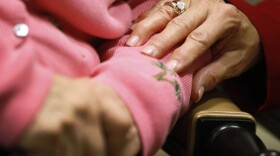-
Tampa resident Melissa Malone shares how she first recognized signs of dementia in her mother during the holidays and how she made adjustments to celebrate with her in the years after her diagnosis.
-
A neurologist and neuropathologist address the prevalence, risk factors, early detection signs and preventive measures related to brain diseases.
-
A sedative shouldn’t be the first thing tried to help people with dementia who exhibit distressing behaviors. A new website is a comprehensive, free resource that offers guidance to caregivers.
-
Research shows two-thirds of the state's dementia caregivers report at least one chronic health condition of their own, and 29% are dealing with depression. A promising resource is in the works.
-
Primary caregivers can learn skills to care for people with dementia through a new six-week online certificate program.
-
It's taking off around the country: Treatment at home for patients sick enough to be in a hospital, but stable enough to be home. Are family caregivers ready for all the responsibility?
-
Despite increases in assets among middle-class Americans in recent years, 80 percent of older adults would be unable to afford two years of long-term care, according to data from the National Council on Aging.
-
The debate about whether employees should be required to return to the workplace has generally focused on commuting, convenience and child care. A fourth C, caregiving, has rarely been mentioned.
-
For years, photographer Lori Grinker struggled to get along with her mother. When Lori moved into her mom's Aventura apartment to help with her mom's failing health (and continue chronicling her life), old wounds melted away.
-
New monitoring technology is helping family caregivers manage the relentless task of looking out for older adults with cognitive decline. But it's not an option for everyone.
Play Live Radio
Next Up:
0:00
0:00
Available On Air Stations










